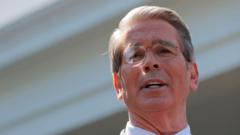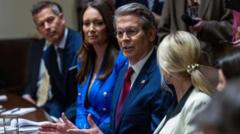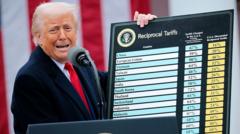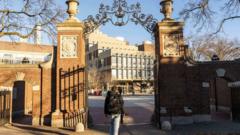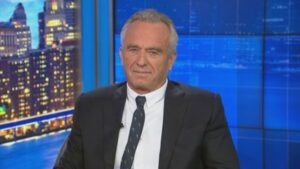In a historic criticism of the Trump administration since leaving office, Barack Obama has openly condemned President Trump’s decision to freeze $2 billion in federal funding to Harvard University. The freeze stems from Harvard's refusal to comply with administration demands aimed at changing policies related to hiring, admissions, and teaching practices, which Trump claims are necessary to combat antisemitism on their campuses.
Obama Critiques Trump's Funding Freeze on Harvard as 'Unlawful'
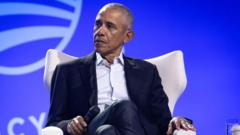
Obama Critiques Trump's Funding Freeze on Harvard as 'Unlawful'
Former President Barack Obama defends Harvard against Trump's funding threats while emphasizing academic freedom.
Obama, an alumnus of Harvard Law School, took to social media to label the funding freeze as "unlawful and ham-handed." He praised Harvard for standing firm against the administration's pressure and encouraged other educational institutions to follow suit. His remarks mark a significant departure from his generally restrained stance on social media regarding political matters since leaving the presidency nearly a decade ago.
In light of Trump's actions, which are perceived as attempts to reshape higher education in America, several prominent voices within the academic community have expressed solidarity with Harvard. A letter signed by hundreds of Yale faculty members warned of escalating attacks on democratic principles, including free expression and academic integrity.
While the Trump administration asserts that many universities have failed to protect Jewish students during recent protests related to the Gaza conflict, it has triggered a broader backlash in the educational sector. Institutions like Stanford University have struggled financially, citing federal funding decrease as a reason for hiring freezes and budget cuts.
In contrast, Harvard has been adamant about resisting government influence over academic instruction. Harvard's president, Alan Garber, emphasized that neither current nor future administrations should dictate academic freedom terms. MIT has also chosen to reject Trump's demands, showcasing a growing trend among universities to uphold their academic independence.
However, despite the pushback, Trump maintains his stance, recently threatening to revoke Harvard's tax-exempt status if it does not comply with his administration's directives. This standoff reflects a deeper ideological divide regarding the autonomy of academic institutions and their role in promoting dialogue and learning amid external political pressures.
In light of Trump's actions, which are perceived as attempts to reshape higher education in America, several prominent voices within the academic community have expressed solidarity with Harvard. A letter signed by hundreds of Yale faculty members warned of escalating attacks on democratic principles, including free expression and academic integrity.
While the Trump administration asserts that many universities have failed to protect Jewish students during recent protests related to the Gaza conflict, it has triggered a broader backlash in the educational sector. Institutions like Stanford University have struggled financially, citing federal funding decrease as a reason for hiring freezes and budget cuts.
In contrast, Harvard has been adamant about resisting government influence over academic instruction. Harvard's president, Alan Garber, emphasized that neither current nor future administrations should dictate academic freedom terms. MIT has also chosen to reject Trump's demands, showcasing a growing trend among universities to uphold their academic independence.
However, despite the pushback, Trump maintains his stance, recently threatening to revoke Harvard's tax-exempt status if it does not comply with his administration's directives. This standoff reflects a deeper ideological divide regarding the autonomy of academic institutions and their role in promoting dialogue and learning amid external political pressures.




